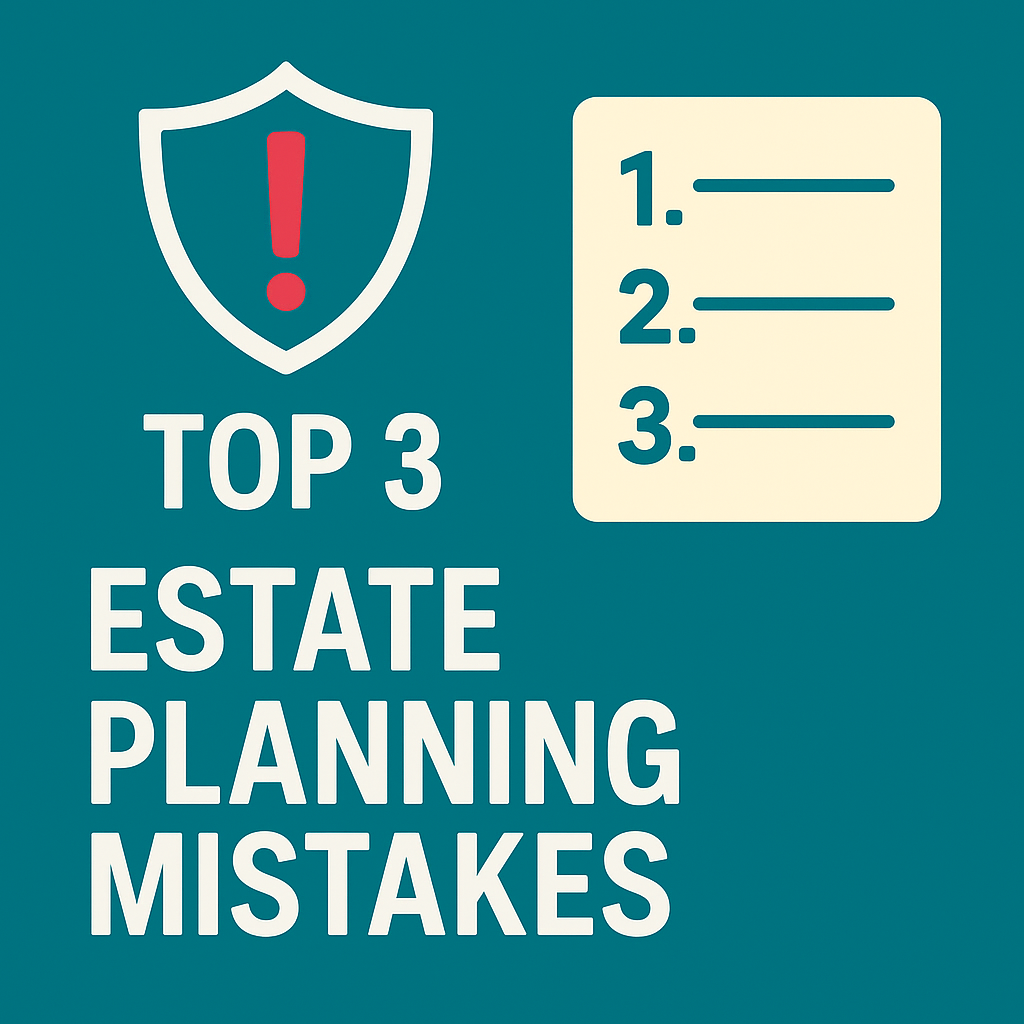Estate planning isn’t just for the wealthy — it’s for anyone who wants to protect their family, save money, and make sure their wishes are honored.
However, many people put it off or create a plan with dangerous gaps. At John R. Tatone & Associates, we frequently see the same avoidable estate planning mistakes.
Below are the top three estate planning mistakes — and, more importantly, what you can do to avoid them.
1. Forgetting to Fund the Trust
Creating a living trust is one of the best ways to keep your estate out of probate court.
Unfortunately, a trust only works if your assets are properly transferred into it. Too often, people sign the trust documents but never retitle their home, bank accounts, or investment accounts.
As a result: Their estate still goes through probate — completely defeating the purpose of the trust.
✅ How to Avoid This Mistake
After creating your trust, be sure to:
Update property deeds so your home is owned by the trust
Change beneficiary designations to reflect your new plan
Retitle bank and investment accounts so they are properly funded
Therefore, working with an experienced attorney is essential. At John R. Tatone & Associates, we guide you step by step to make sure your trust does what it was designed to do — protect your family and keep things out of court.
2. Failing to Update Your Estate Plan
Life changes — and consequently, your estate plan should too.
Marriage, divorce, the birth of a child, buying property, or even changes in tax law can all significantly impact your plan. A will or trust you signed ten years ago may no longer reflect your current wishes — or worse, it may create conflict among your loved ones.
✅ How to Avoid This Mistake
To stay current, review your plan:
Every 3–5 years
After any major life event
Whenever tax laws change
In other words, think of estate planning as ongoing maintenance rather than a one-time project. A quick review with an experienced attorney provides peace of mind that your plan still protects your assets and loved ones.
Additionally, at our firm, we send clients reminders and schedule reviews so nothing falls through the cracks.
3. Not Planning for Incapacity
Estate planning isn’t just about what happens after you pass away — it’s also about what happens if you can’t make decisions for yourself.
Without the right documents, your family may have to go to court just to manage your medical care or finances. This process can be costly and stressful.
✅ How to Avoid This Mistake
Instead, make sure your estate plan includes:
Durable Power of Attorney – lets someone you trust handle finances if you can’t
Patient Advocate Designation (Healthcare Power of Attorney) – authorizes someone to make medical decisions on your behalf
By including these documents, you allow your family to step in seamlessly, which avoids expensive legal proceedings and ensures your wishes are respected.
Why These Mistakes Happen
Many people assume estate planning is a one-time event — something you do once and never revisit. Others, meanwhile, try DIY online forms, which rarely account for state-specific rules or unique family circumstances.
As a consequence, they end up with an incomplete plan that can create more problems than it solves.
Instead, working with an experienced estate planning attorney ensures your plan is comprehensive, legally sound, and kept up to date.
The Bottom Line: Protect Your Family with the Right Plan
Ultimately, avoiding these three common mistakes — forgetting to fund your trust, failing to update your plan, and neglecting incapacity planning — can save your loved ones time, stress, and thousands of dollars in unnecessary costs.
At John R. Tatone & Associates, we guide families through a simple three-meeting process that results in a complete estate plan in just 30 days.
Moreover, our fixed-fee model means no surprises — and our ongoing support keeps your plan current.

